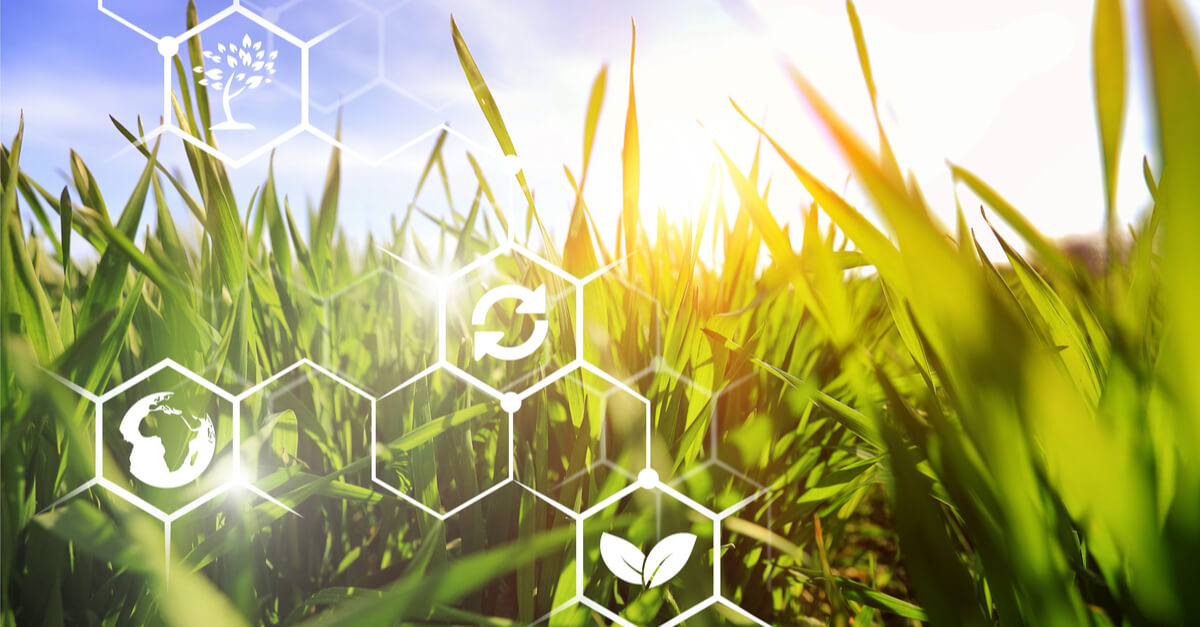Our journey towards the end of chemical residues in agriculture

The concept of biological farming has been gaining more and more supporters over the years, and not only among the producers, but also among the consumers. It’s not just an agricultural model that renounces the use of artificial products based on synthetic chemistry, but also, as the FAO (Food and Agriculture Organization of the United Nations) describes it, a system that relies on ecosystem management and begins to consider “potential environmental and social impacts by eliminating the use of synthetic inputs, such as synthetic fertilizers and pesticides, veterinary drugs, genetically modified seeds and breeds, preservatives, additives and irradiation”. And this has come to be because of the effects of the agricultural products we’ve been using for a century now, which have been proven harmful to human health, livestock, plants and the environment in general. Favoring biological, natural solutions is the most obvious choice.
But how did we reach this inflection point? For a long time, the agricultural industry just focused on manufacturing solutions to improve productivity, by optimizing the ratio area/yield. We were not aiming to achieve high-quality, healthy fruits or vegetables, but to increase yield and multiply harvests as much as possible.
Chemical fertilizers, herbicides and pesticides became sort of an effective, must-have triad, based on a simplistic misconception of soil fitness and plant behavior. Nutrients like nitrogen or phosphorus were often added to the compounds used for soil fertilization or pest control. In many cases, it took us a long time to see the consequences of this type of products.
Nitrogen and phosphorus were often added to the compounds used for soil fertilization
Chemical pollution
Nitrates, for example, are among the main pollutants of underground water, because they can easily move from the soil to those water reserves. And something similar happens with phosphates, which not only lead to freshwater eutrophication, but can also be harmful to human health due to their cadmium content. Generally, phosphates are readily absorbed by plants and, in some cases, accumulate in the fruits, as is the case for nuts and soybean. This has, naturally, numerous environmental implications, as phenomena like acid rain and the chemical pollution of ecosystems reflect, but it might also have an impact on human health, favoring the development of some types of cancer.
When managing agrochemicals, prevention measures must be taken, like training sessions for product handlers, cleaning up polluted sites, or properly assessing their presence in the environment, etc. But let’s go back to our original premise, because there is an alternative: Favoring biological and natural agriculture.
By replacing fertilizers and synthetic pesticides with non-generic biological products, such as pre- and probiotics, which are adapted to the bioclimatic conditions of each and every crop, we’ll avoid any risks.
No doubt the great flaw of such a strategy was always of an economic nature: Productivity. Organic crops required a greater workforce and a larger cultivation area to achieve the same yield as non-organic crops. And this affected costs as well, making what comes from organic farming production more expensive. However, the solutions developed by the biotechnology industry, that is, by companies such as Kimitec, are contributing to reach some balance.
Natural solutions allow to achieve higher yields and obtain high-quality fruits and vegetables full of flavor
Nowadays, natural solutions allow to achieve higher yields and obtain high-quality fruits and vegetables full of flavor, leaving no pollutants nor triggering processes that might be dangerous to human health. Scientific research is currently a great help to develop solutions that meet the needs of the entire consumer chain. And in the current scenario, where we need to address the pressing environmental emergencies our planet is facing, those solutions are more welcome than ever.
